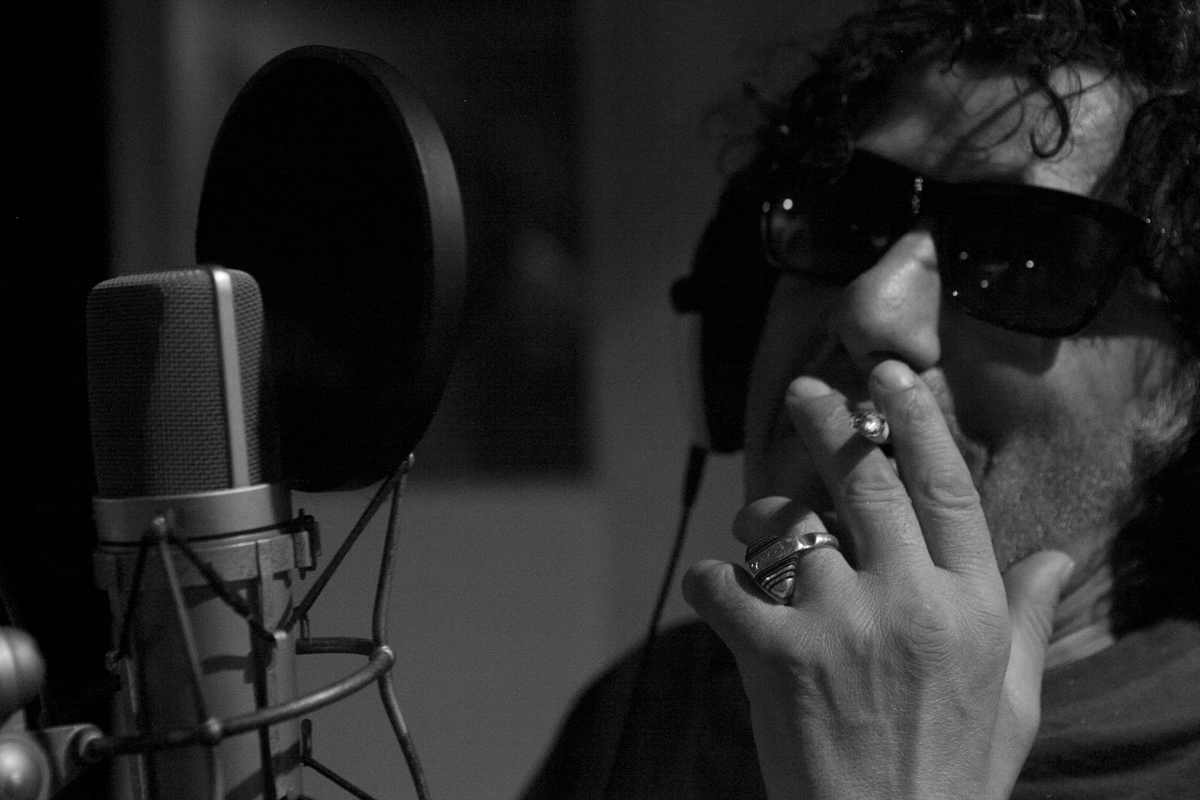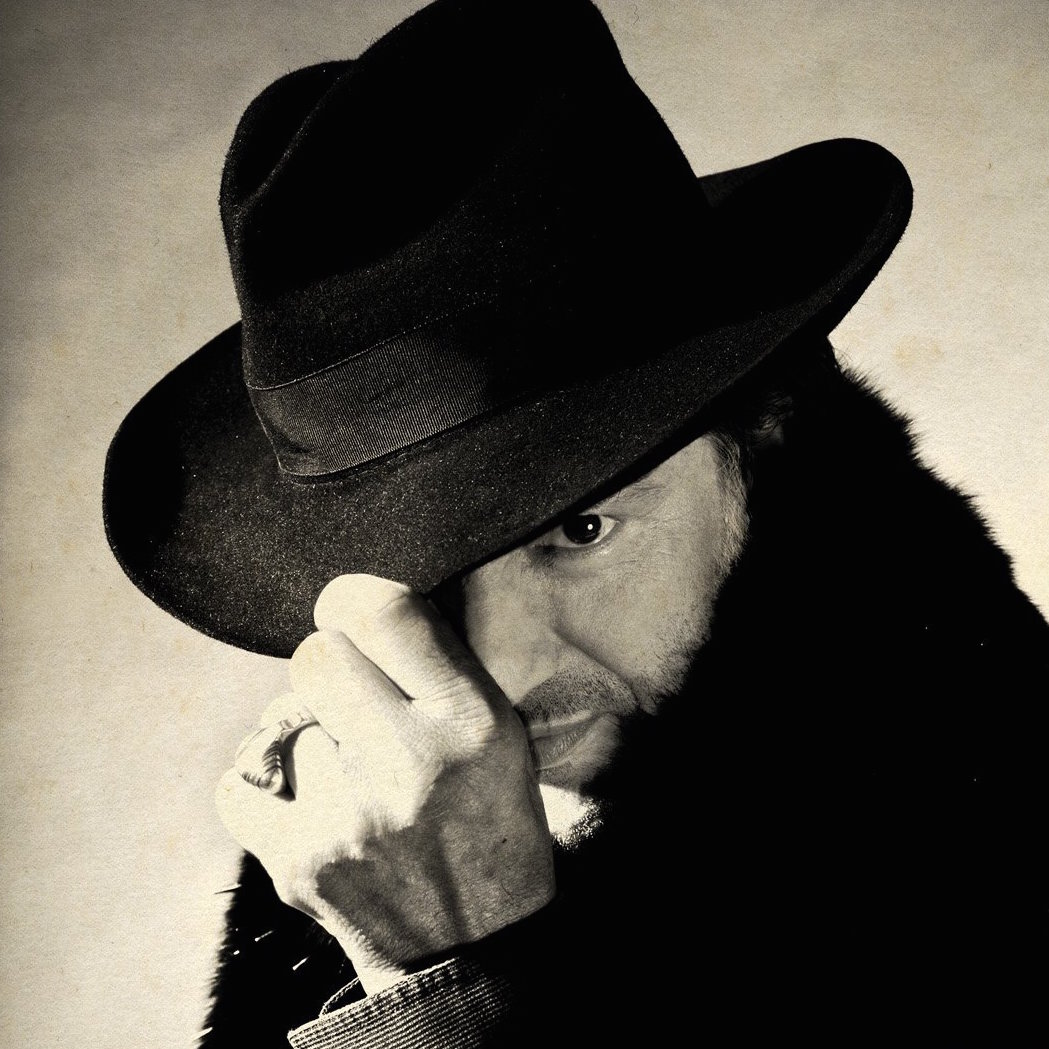Rachid Taha - from peroxide-blonde punk to rock deity par excellence
Walking along the hushed banks of the river Thames, a slab of black marble beneath the miasma of the dull November sky, I had the white city of Algiers on my mind. Alger, Alger, where the thick, pungent smell of leather mingles with the perfume of mint and roses, where tattooed women with ancient faces navigate the hot, dusty alleyways of the Casbah, and bleached sails dance with a Spanish breeze from beyond the Mediterranean … But where was Algiers, and where was I? Cold, sniffling, and far from home, there I was in London, bearing the tedium of my Master’s studies and the accompanying melancholy so often induced by the sight of ill-fitting pinstripe suits and the click-clack of polished leather brogues. Luckily for me, though, Rachid Taha, Algeria’s scruffy, affable ambassador of raï was in town that night with a show at the Southbank Centre as part of his Bonjour tour, and I’d have been damned if I was going to miss it.
‘Ha baby!’ he exclaimed in a raspy, booze-soaked tongue; I could even hear the alcohol. ‘Ha baby? You say ha baby, we say habibi!’, he explained, in an effort to elucidate the ‘story’ behind one the titles of his new numbers. By now, Taha’s disheveled curls were glistening beneath the hot stage lights, his top hat had ignominiously tilted itself aside, and his damp violet shirt – sans discarded blazer – had long squirmed its way out of his skinny black trousers. If there was ever anyone who fit the ‘elegantly wasted’ bill, I thought to myself, it was this guy. Wriggling around, brushing his fingers through his swarthy locks and against his burnished brow, he and his ragtag outfit slowly – but surely – eased their way into the next number, much to the elation of an enrapt and slightly intoxicated audience; for after he sat down onstage to languidly dribble a football between his feet, no one imagined he’d make it up on his snakeskin boots again. In the front rows, a mesmerised camp of Algerians gyrated back and forth beneath the shadow of the national flag, tripping hippies swayed about violently on the balcony above, and a 70-something year-old couple left the hall in marked disgust. The sharif may not have liked it, but Taha wasn’t one to give a damn. Ya ha baby, ya ghalbi! Taha continued to cry, ever defiantly, as he rocked and razed that casbah to the ground. For that one moment on an otherwise bleak autumn night, it seemed as if everything, somehow, was going to be OK.

Today, Rachid Taha looks at me coyly from beneath a ribboned fedora clutched in a bejeweled hand, his figure shrouded in a black fur coat. Though the twinkle in his eye suggests he’s still as deviant as ever, I can’t help but notice something more mature and refined in his gaze. The punkish Parisian swagger of his Carte de Séjour days lingers on yet, as does the aggressiveness of his Ole Ole and Tekitoi periods, and he still looks every bit the proud, defiant Arab of the Diwan era in his most recent incarnation; what is it about Rachid that’s different, then? Gazing at me, hat in hand, it’s as if he’s trying to communicate something here: been there, done that, he seems to insinuate; and indeed, like a creature out of Ovid’s Metamorphoses, Rachid Taha has, for the past 30-odd years, undergone transformation upon transformation to radically change the face of contemporary North African and Middle Eastern music. No longer is he the juvenile, cocksure rogue trawling the backstreets of Boulevard Barbès, but rather, a veritable force in the rock pantheon to be reckoned with. Here is someone comfortable in his own skin, hardened – not weathered – by decades past, reclaiming his musical territory with more vigour and urgency than ever. But what does Taha feel he’s bringing to this record? ‘My smell’, he said indifferently in a recent interview. As always, I can’t tell whether the man’s joking or if he’s serious.
Been there, done that, he seems to insinuate; and indeed, like a creature out of Ovid’s Metamorphoses, Rachid Taha has, for the past 30-odd years, undergone transformation upon transformation to radically change the face of contemporary North African and Middle Eastern music
Taha’s got a brand new bag. As with most of his other efforts, Zoom, released earlier this year in March, comes as an eclectic melting pot of varying styles, influences, and sentiments, not unlike the man himself. Picking up from where he left off on Bonjour (2009), the songs here are buoyant and guitar-heavy, though Taha’s signature raunchy Algerian notes are more marked on this record than on the former. On numbers like Wesh (N’Amal), Ana, and Galby, more or less the same Bonjour vibe can be heard, excepting the 50s reverb-soaked guitars and driving acoustic rhythms accentuated by Hakim Hamadouche’s mandolute runs, which lend the songs a more ambient and atmospheric air. In contrast, after a somewhat long reprieve, his more punkish and abrasive sounds from the early 2000s have made a sort of ‘comeback’. For fans of Tekitoi, the electro-rocker Jamila, and the madness of Khallouni / Ya Omri will come as welcome surprises, as will the jaunty Fakir, the growling Les Artistes, and the brooding Algerian Tango, the latter two marking Taha’s first forays into blues and dub. New ground is definitely explored here, perhaps owing in part to Taha’s collaboration with the Clash’s Mick Jones, whose acerbic power chords and unadulterated backing vocals are tastefully peppered throughout the record.
As much as Zoom is a celebration of the new, though, it also marks a revival of sorts of Taha’s signature sound, which was somewhat absent on Bonjour. On Zoom sur Oum, traditional instruments such as the qanun, ney, and darabuka, which featured prominently on records such as Diwan (I & II) and Made in Medina, come together with Taha’s slightly more reserved vocals on an ornate homage to Om Kolthoum. Similarly, the raunchy Khallouni / Ya Omri (think Cheikha Rimitti meets Johnny Thunders), the North African-flavoured chorus of the otherwise rocking Jamila, and a direct mandolute riff from an earlier cover, El H’mame, on the lush Now or Never, all harken back to Taha’s earlier albums from the late 90s and early 2000s, two of the most fruitful and seminal periods of his career to date; and as if this weren’t enough, the album closes with a beefed-up, electrified version of his 1993 single Voilà, Voilà, on which Taha and a host of friends – including Mick Jones, Femi Kuti, and French actor/former footballer Eric Cantona – give a new kick to the fury and rebellion of the original.
For me, the highlight of Zoom is not any song in particular, nor its stellar cast, but rather Taha himself. Despite his greying beard, he sounds more confident than he’s ever been in the last ten years or so, and is in top form throughout. The trademark guttural growl still resounds yet, although Taha seems to have found its peak range, and is in much better control, vocally speaking. The result is that nothing is overdone here, everything being in perfect measure. On the ‘softer’ acoustic numbers, he sings with just enough energy and grit to get the message across, on the edgier ones he doesn’t seem to have lost his acerbity one bit, and during the record’s jauntier moments, he sings with the same impishness and wit that have long defined his style since the days of Douce France. Andy wahloo! he cries playfully on Les Artistes – I have nothing, baby!
Well, despite what Taha may think, there’s definitely something happening on Zoom, not least the sonic affirmation of his metamorphosis from peroxide-blonde punk to rock deity par excellence. It’s been well worth the wait, and Taha, as usual, has delivered the goods in full.
Voilà, voilà, que ça recommence …

